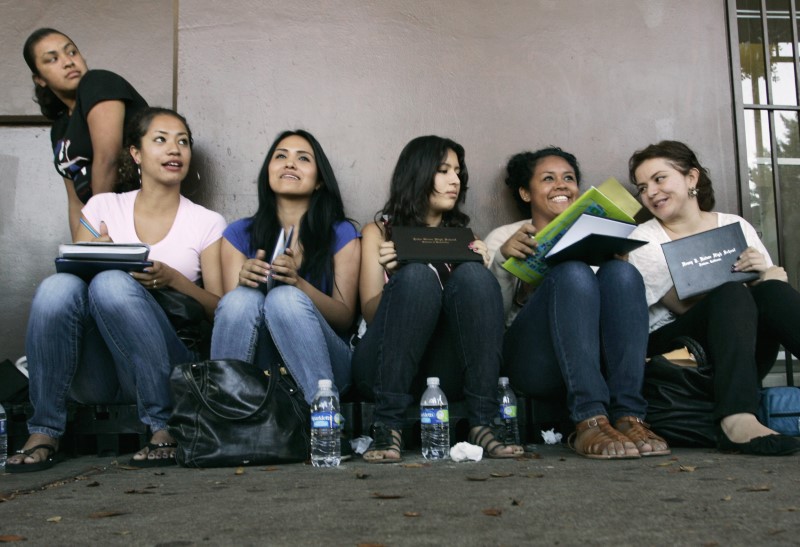By Julia Harte
WASHINGTON (Reuters) - U.S. President Donald Trump is likely to rescind an Obama-era policy that protects nearly 600,000 immigrants who entered the country illegally as children and are known as "Dreamers," according to media reports on Friday.
Trump's decision on whether to end the Deferred Action for Childhood Arrivals, or DACA, policy could be announced as early as next week, reported ABC News, citing multiple sources.
Attorney General Jeff Sessions discussed the program with senior White House officials on Thursday, according to an administration official.
Department of Homeland Security spokesman David Lapan denied reports that the department had made any recommendations on DACA to the White House. "There have been continuing discussions about DACA but nothing has been determined," Lapan told Reuters.
White House Press Secretary Sarah Sanders told reporters on Friday that the program continues to be under review. A White House spokesperson told Reuters that only Congress can legislate a permanent solution for the plight of children who are currently protected from deportation by DACA.
Trump had pledged on the election campaign trail to scrap all of former President Barack Obama's executive orders on immigration, including DACA.
Immigrant advocates reacted to the news with a flurry of statements, promising to defend the program with protest and legal action.
“Immigrant youth fought to create the DACA program and we will fight like hell to defend it,” said Greisa Martinez Rosas, Advocacy Director and DACA-beneficiary of United We Dream said in a statement.
Civil rights groups said ending the program could increase racial divisions in the country in the wake of the recent violence in Charlottesville.
Ten Republican state attorneys general in June urged the Trump administration to rescind the DACA program, while noting that the government did not have to revoke permits that had already been issued.
If the federal government did not withdraw DACA by Sept. 5, the attorneys general said they would file a legal challenge to the program in a Texas federal court.
The 10 who signed the letter represent Alabama, Arkansas, Idaho, Kansas, Louisiana, Nebraska, South Carolina, Tennessee, Texas and West Virginia.

A larger coalition of 26 Republican attorneys general had challenged the Obama-era policy covering illegal immigrant parents, known as DAPA, that had been blocked by the courts before it took effect. The Department of Homeland Security rescinded that policy earlier this year.